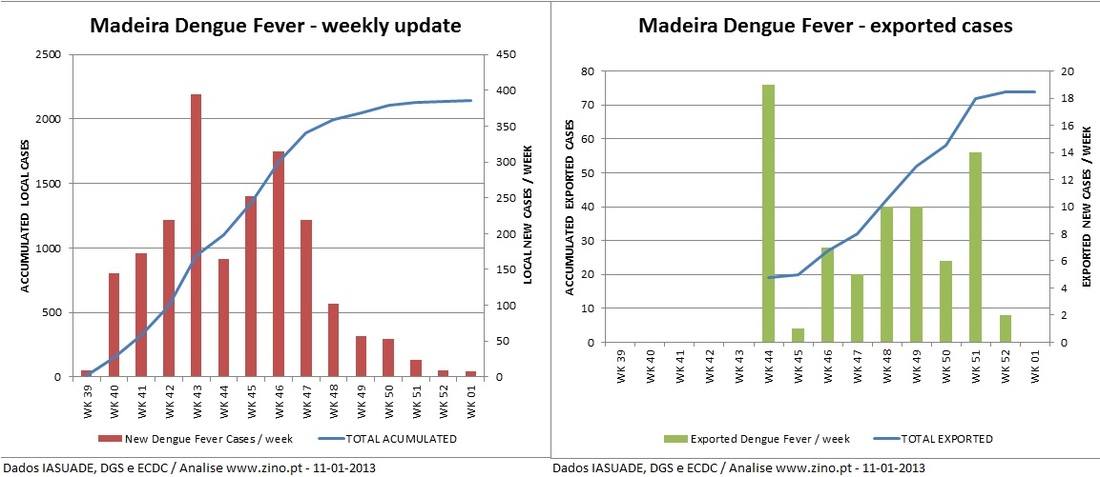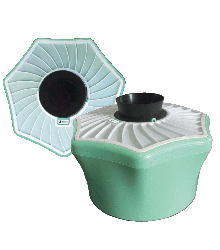Madeira Dengue Outbreak coming to an end with reduced mosquito activity
We have extracted the key summary points from the last ECDC report below.
Local and the Portuguese national health authorities are only issuing monthly reports, but there is an ongoing monitoring program by the local health authorities.
ZINO - Consultadoria, in partership with ITB are also proposing a monitoring program for private individuals and enterprises, which will not only allow monitoring of mosquito activity in participants "back yard", but also recommend actions in line with best international practises, including preventative measures (mosquito nets, cleaning of breading grounds, etc) as reactive measures (increase use of mosquito traps, chemical treatments, etc) - interested parties can visit this page and contact us directly for more information.
There is no new update this week on the number of autochthonous dengue cases in Madeira. As of 6 January 2013, 2.144 cases of dengue infection have been reported.
As of 17 January 2013, 74 patients have been diagnosed with dengue after returning from Madeira: 10 in Portugal, 23 in the UK, 19 in Germany, three in France, five in Sweden, four in Finland, two in Denmark, two in Austria, and two in Norway. Croatia, Slovenia, Spain and Switzerland have all reported one case each. The last reported case was on 3 January 2013.
The updated figures indicate that the outbreak has peaked, with a decrease in the number of cases being reported since mid-November. Entomological surveillance has shown a decrease in mosquito activity as well.
The cases of dengue among returning travellers from the island highlight the need for travellers to Madeira to take measures in order to reduce mosquito bites. Travellers experiencing febrile symptoms with severe headache, retro-orbital pain, myalgia, arthralgia and maculo-papular rash within 21 days of visiting the island of Madeira are advised to seek medical advice.
The epidemiological situation does not imply the need for any trade or travel restriction beyond the disinfestation policies currently implemented.
| 2013-01-18_ecdc_communicable-disease-threats-report-19-jan-2013.pdf |



 RSS Feed
RSS Feed
